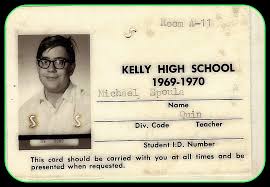
Because the ACT is such a high-stakes test, the folks at ACT, Inc. have implemented a series of rules to ensure that there is no cheating and that all students have as close to the same test-taking experience as possible.
Before you take the ACT, you should familiarize yourself with these important rules. You don’t want to start using some scratch paper that you brought and then be dismissed from the test and have your score canceled. Know the rules so you don’t find yourself in such a situation.
In this article, I’ll explain the rules for the ACT and the consequences for breaking them.
The Purpose of ACT Rules
There are rules for the ACT to prevent cheating and ensure the same test-taking experience for all students. Through these rules, the ACT folks are trying to create a fair, standardized test-taking experience for everyone who takes the ACT. If certain people are given an advantage, that could affect college admissions and future ACT scores.
Now that we know why the rules exist, let's take an in-depth look at the rules you need to follow when you take the ACT.
All the ACT Rules You Should Know
You should review the prohibited behavior during your ACT. Also, these are the items you must remember on test day.
Let's go over both sets of rules in depth. I'll emphasize the important regulations to make sure there's no confusion.
Key Guidelines You Must Follow on Test Day
Be on time! You won’t be admitted to the test if you're late. The reporting time is 8:00 AM, but I advise that you arrive at your testing center by 7:30. When I took the ACT, there was a long line that moved rather slowly to enter the testing center. I showed up at 7:30 and entered the room I took my test in shortly before 8:00.
Make sure you're only working on the designated section. If you’re taking the math test and realize that you messed up on an English question, there’s nothing you can do at that point. Going back to a previous section or looking ahead in your test booklet is considered cheating.
Don’t talk about exam content at any time. This is a tough rule to follow, but don’t talk about specific questions during breaks or after the test. The ACT doesn’t want you sharing information about test questions because questions are often reused. I know you’ll be tempted to talk about that annoying reading passage with your friend, but don’t, especially at the test center. A strict proctor can cancel your score for doing that.
When you arrive at the test center, turn your phone off and put it in your backpack. If you look at your phone or if it makes any noise during the test, you can be dismissed and have your score canceled. You can post an Instagram pic of what you wore to the test after you get home.
This is probably obvious, but don't do anything that can be considered cheating. Cheating isn't only unethical, but also you don't want to face the consequences if you get caught.
What You Must Bring to the Test
Admission ticket — You must have your admission ticket on test day.
Photo identification — Make sure to bring an acceptable photo ID. You won't be admitted to the exam if you don't have your ticket and proper ID.

Bring an acceptable ID to the ACT
What You Should Bring
No. 2 pencils with good erasers — On the ACT, you're not supposed to use mechanical pencils or pens. Don't be that person anxiously asking for a pencil right before the test starts. Also, a good eraser is likely to come in handy.
A permitted calculator — You can't use calculators that make noise, have a QWERTY keyboard, or use a power cord. You can't use calculator apps on a cell phone or laptop. Check out this page for the specific ACT rules on calculators.
A watch — I recommend using a watch to help yourself keep track of time on each section. The proctor may forget to remind you when time is running out on a section, and the clock in the room may not be working. However, make sure that the watch you bring doesn’t make noise and that the alarm is off. If an alarm goes off during the test, you can be dismissed and have your score canceled.
Miscellaneous items — Here are some things you should bring that will make your test-taking experience more comfortable and less stressful: a backpack, snacks and water for breaks, extra batteries for your calculator, and extra pencils and erasers. You may not be allowed to eat in the testing room, but it’s a long test so it’s good to refuel during breaks.
What You Shouldn't Bring
Any electronic device other than your watch and cell phone — If you’re seen with a laptop or personal computer, that will be considered cheating. Make sure you’re not using any audio or video recording devices. That will also be considered cheating. (Also remember that your phone must be put away.)
Scratch paper — If an exception applies and you’re allowed to use scratch paper, you may only use paper that ACT has authorized or supplied to you.
A dictionary or thesaurus — The only resource you're allowed to use is a permitted calculator to help you with math.
Possible Consequences for Rules Violations
The consequences for violating any of these rules can vary. Often the consequence will depend on the strictness of your proctor or test center. If you don't have proper ID or your admission ticket, you may not be admitted to the test.
If you’re caught violating other rules, you can be dismissed from the test and possibly have your score canceled.
In certain situations, you can have your score withheld if there is suspected cheating.
In the most extreme cheating situations, the ACT can even take legal action. It's most definitely in your best interest to know and follow the rules.

What's Next?
Learn the 21 ACT tips you should be using and 14 last-minute ACT tips.
If you want to get a perfect ACT score, instead of cheating, learn how to get a 36 on your ACT from a perfect scorer.
Looking for practice ACTs? Taking practice tests is one of the best ways to study for the ACT, and we've compiled links to all the free and official ACT practice tests available online.











